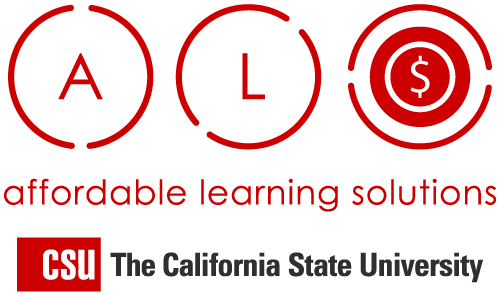Our Mission_
"To equip higher education campus leaders, administrators, and faculty with the training, guidance, and resources needed to reduce course material costs and increase student success through cross-collaboration efforts across California."
Soaring textbook costs are negatively impacting today's college students – especially those from historically underserved populations. In recent years, California State University Channel Islands (CSUCI) has emerged as a national leader in textbook affordability by introducing the first three zero-textbook-cost undergraduate majors (aka, "Z-Majors") in the entire CSU system – and perhaps the entire nation. The California Alliance for Open Education (CAopenEd) was established to help scale CSUCI’s unprecedented success to a larger, external audience by equipping campus leaders with the administrative training, guidance, and resources they need to help reduce course material costs and increase student success.



















